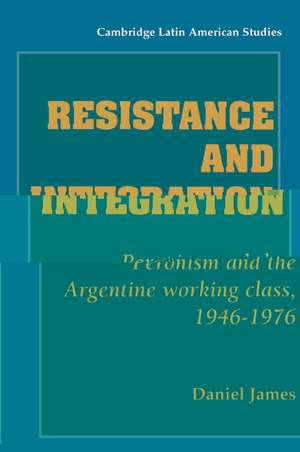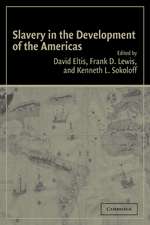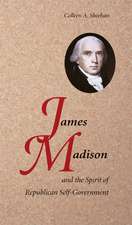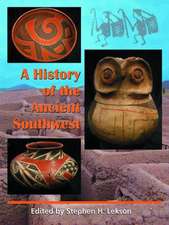Resistance and Integration: Peronism and the Argentine Working Class, 1946–1976: Cambridge Latin American Studies, cartea 64
Autor Daniel Jamesen Limba Engleză Paperback – 28 apr 1994
| Toate formatele și edițiile | Preț | Express |
|---|---|---|
| Paperback (1) | 362.75 lei 6-8 săpt. | |
| Cambridge University Press – 28 apr 1994 | 362.75 lei 6-8 săpt. | |
| Hardback (1) | 698.16 lei 6-8 săpt. | |
| Cambridge University Press – 20 apr 1988 | 698.16 lei 6-8 săpt. |
Din seria Cambridge Latin American Studies
-
 Preț: 231.54 lei
Preț: 231.54 lei - 9%
 Preț: 593.09 lei
Preț: 593.09 lei -
 Preț: 200.78 lei
Preț: 200.78 lei -
 Preț: 198.38 lei
Preț: 198.38 lei -
 Preț: 236.92 lei
Preț: 236.92 lei -
 Preț: 188.27 lei
Preț: 188.27 lei -
 Preț: 236.99 lei
Preț: 236.99 lei -
 Preț: 322.67 lei
Preț: 322.67 lei -
 Preț: 289.01 lei
Preț: 289.01 lei -
 Preț: 526.45 lei
Preț: 526.45 lei -
 Preț: 209.07 lei
Preț: 209.07 lei - 11%
 Preț: 691.66 lei
Preț: 691.66 lei -
 Preț: 257.52 lei
Preț: 257.52 lei -
 Preț: 290.62 lei
Preț: 290.62 lei -
 Preț: 238.63 lei
Preț: 238.63 lei -
 Preț: 234.31 lei
Preț: 234.31 lei - 9%
 Preț: 594.05 lei
Preț: 594.05 lei -
 Preț: 156.72 lei
Preț: 156.72 lei - 11%
 Preț: 591.79 lei
Preț: 591.79 lei - 14%
 Preț: 732.69 lei
Preț: 732.69 lei -
 Preț: 325.38 lei
Preț: 325.38 lei - 11%
 Preț: 694.91 lei
Preț: 694.91 lei -
 Preț: 328.56 lei
Preț: 328.56 lei -
 Preț: 321.74 lei
Preț: 321.74 lei - 5%
 Preț: 306.74 lei
Preț: 306.74 lei -
 Preț: 287.07 lei
Preț: 287.07 lei -
 Preț: 284.98 lei
Preț: 284.98 lei -
 Preț: 287.66 lei
Preț: 287.66 lei -
 Preț: 284.39 lei
Preț: 284.39 lei -
 Preț: 318.84 lei
Preț: 318.84 lei -
 Preț: 287.28 lei
Preț: 287.28 lei -
 Preț: 191.51 lei
Preț: 191.51 lei -
 Preț: 322.51 lei
Preț: 322.51 lei - 23%
 Preț: 582.60 lei
Preț: 582.60 lei
Preț: 362.75 lei
Nou
Puncte Express: 544
Preț estimativ în valută:
69.41€ • 72.62$ • 57.66£
69.41€ • 72.62$ • 57.66£
Carte tipărită la comandă
Livrare economică 02-16 aprilie
Preluare comenzi: 021 569.72.76
Specificații
ISBN-13: 9780521466820
ISBN-10: 0521466822
Pagini: 312
Dimensiuni: 152 x 228 x 23 mm
Greutate: 0.45 kg
Ediția:Revised
Editura: Cambridge University Press
Colecția Cambridge University Press
Seria Cambridge Latin American Studies
Locul publicării:New York, United States
ISBN-10: 0521466822
Pagini: 312
Dimensiuni: 152 x 228 x 23 mm
Greutate: 0.45 kg
Ediția:Revised
Editura: Cambridge University Press
Colecția Cambridge University Press
Seria Cambridge Latin American Studies
Locul publicării:New York, United States
Cuprins
Acknowledgements; Introduction; Part I. The Background: 1. Peronism and the working class, 1943–55; Part II. The Peronist Resistance, 1955–8: 2. The survival of Peronism: resistance in the factories; 3. Commandos and unions: the emergence of the new Peronist union leadership; 4. Ideology and consciousness in the Peronist resistance; Part III. Frondizi and Integration: Temptation and Disenchantment, 1958–62: 5. Resistance and defeat: the impact on leaders, activists and rank and file; 6. The corollary of institutional pragmatism: activists, commandos and elections; Part IV. The Vandor Era: 1962–6; 7. The burocracia sindical: power and politics in Peronist unions; 8. Ideology and politics in Peronist unions: different currents within the movement; Part V. Workers and the Revolución Argentina: from Onganía to the Return of Perón, 1966–73; 9. The Peronist union leaders under siege: new actors and new challenges; 10. Conclusion; Notes; Select bibliography; Index.
Recenzii
'This book is notable for its deft portrait of a working class which has been both active and passive, demonstrating both a capacity to organize and fight to protect its interests and a willingness to demobilize and accept compromise when circumstances demanded. James has rejected the simple answers of those who have ascribed working-class passivity to manipulation or corruption, and has succeeded in shedding a great deal of light upon the complexities engendered by these dual traits.' Joseph A. Page, The Americas
Descriere
A solidly researched, persuasive study of the Argentine labour movement which analyses the relationship between Peronism and the Argentine working class.













